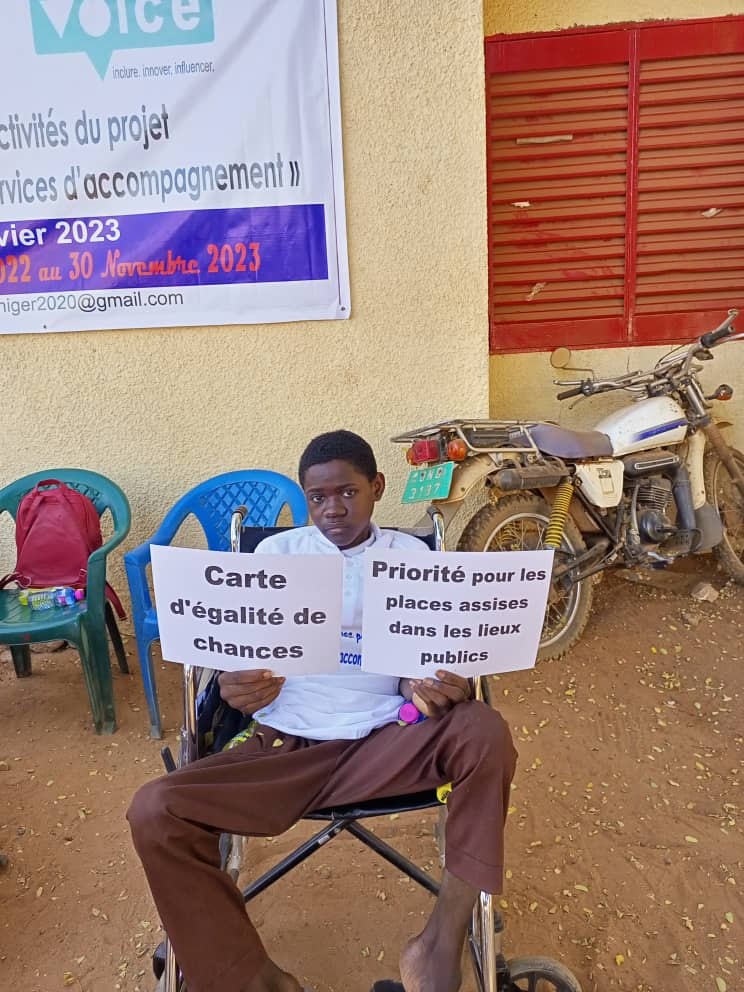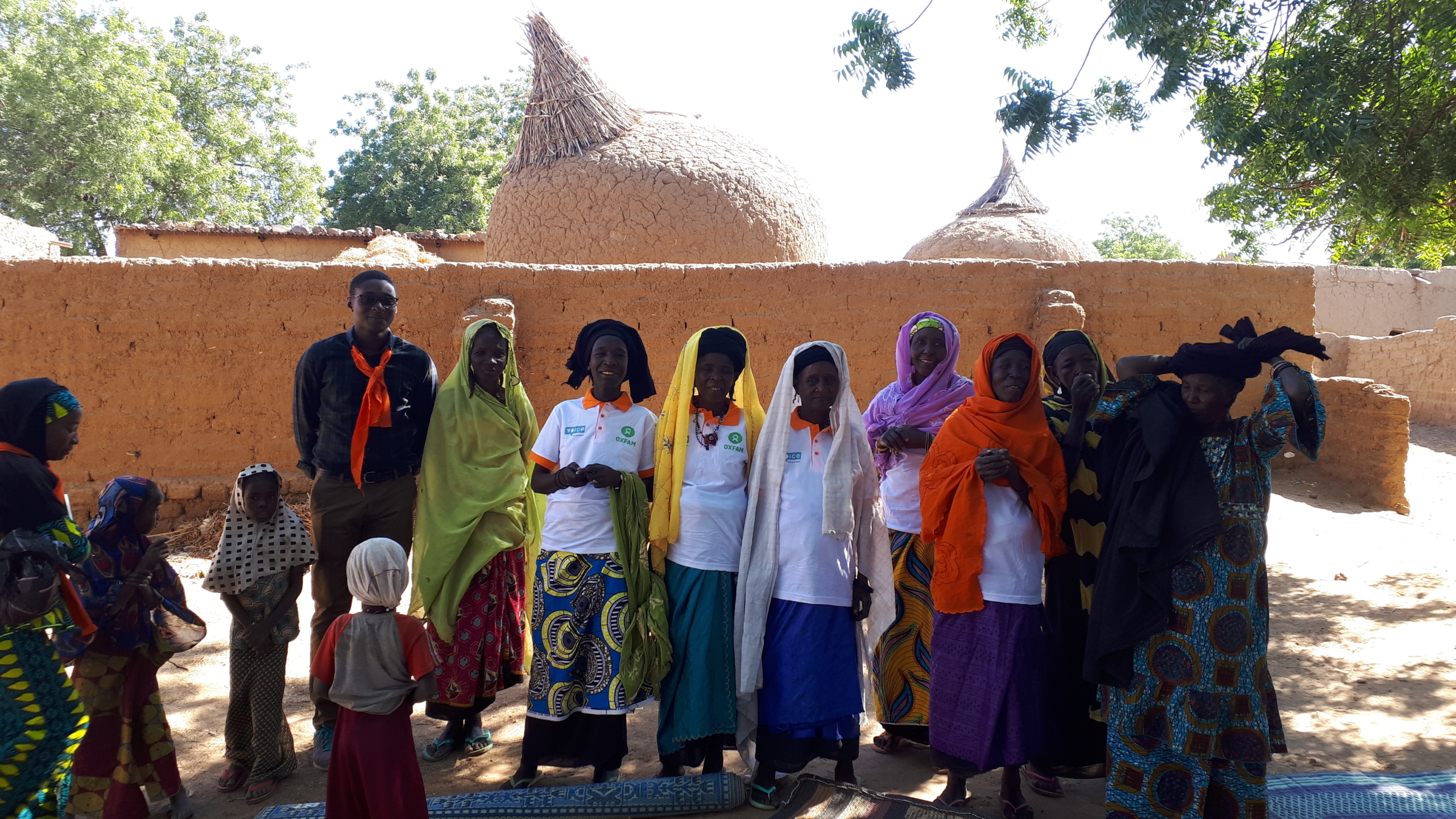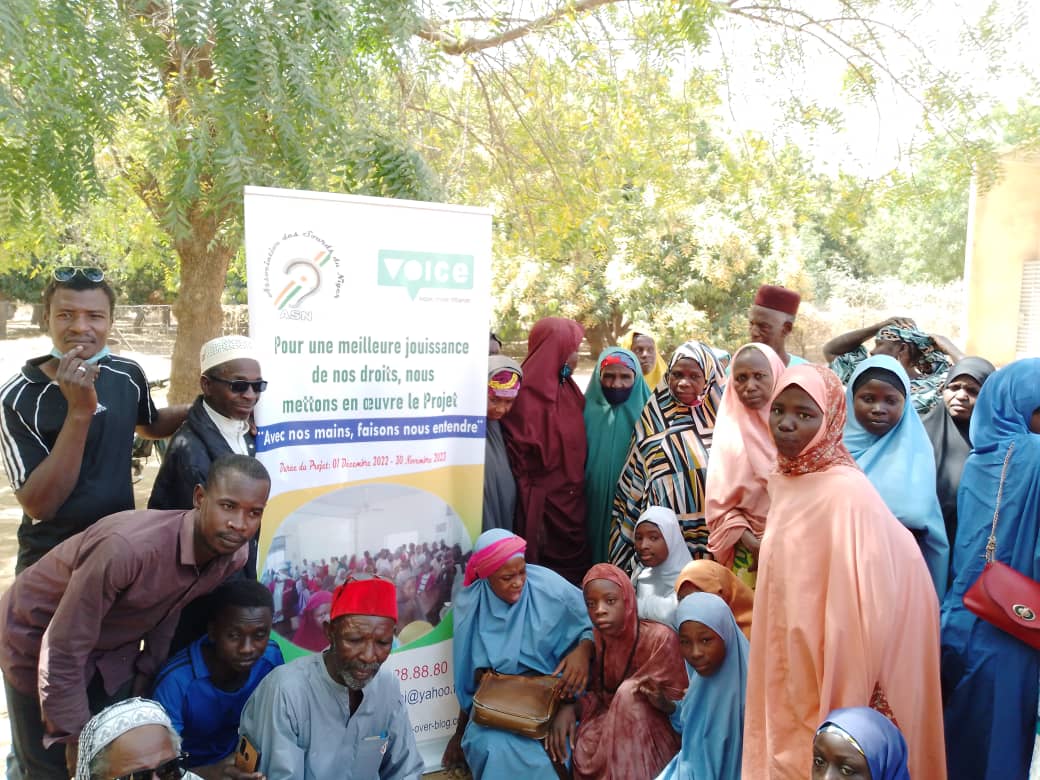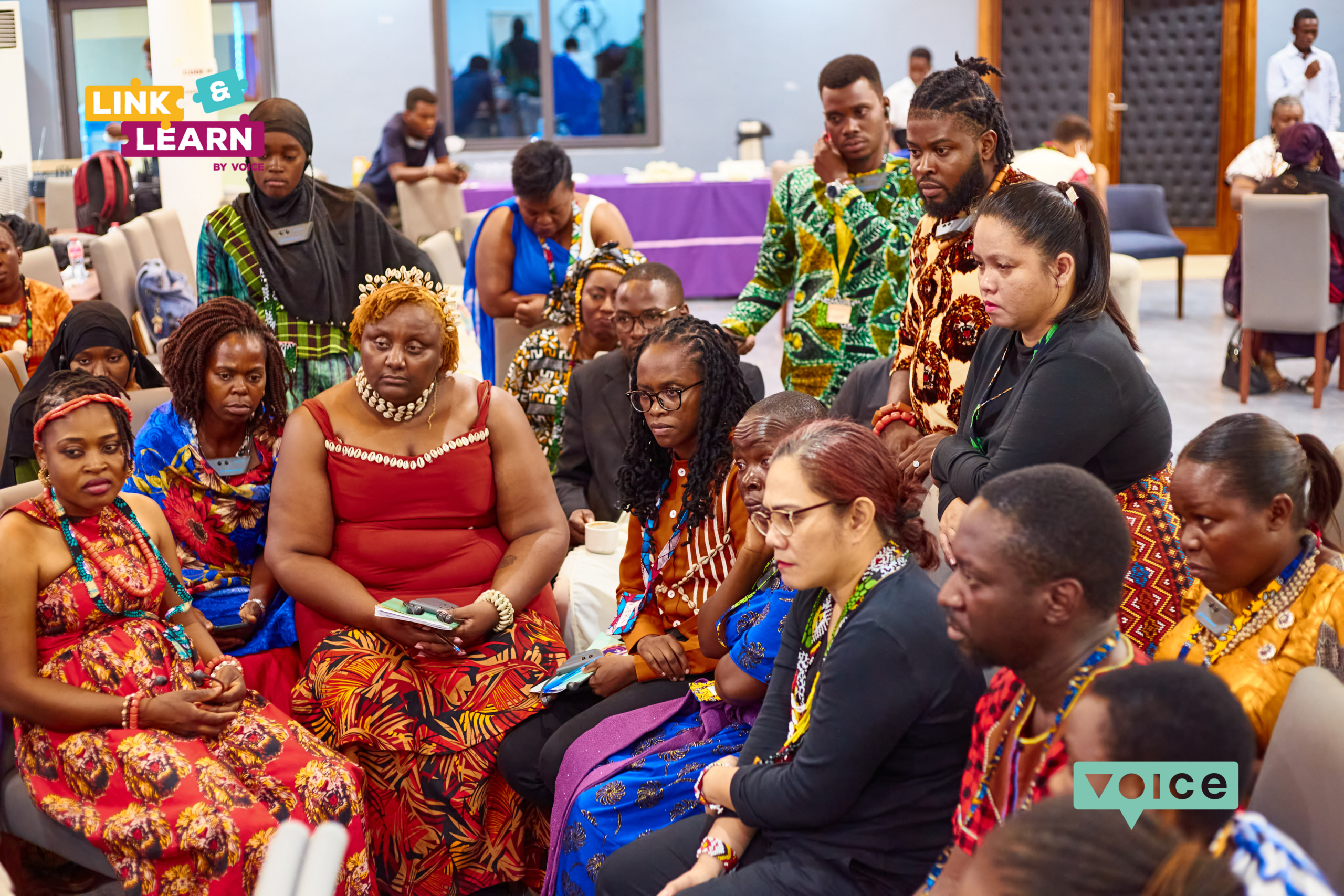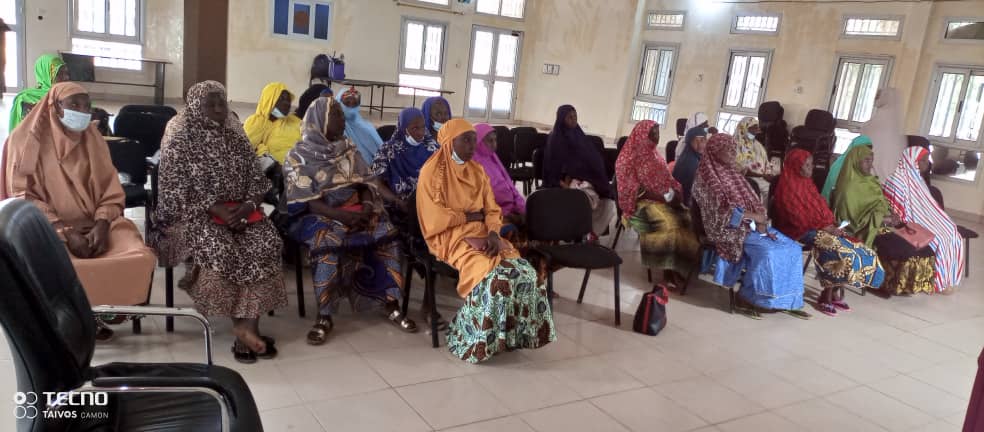Disability is not a fatality!
Written by Fati YABILAN, Linking, Learning and Amplifier Officer
A rare and complex disability, multi-disability, appears as a motor impairment and a severe or profound intellectual disability, leading to a dangerous restriction of autonomy, mainly affecting communication, socialization, mobility and daily life. These implications vary considerably depending on whether multiple disabilities are acquired in everyday life or by birth. The quality of life of children and adults with various disabilities is greatly influenced by communication, appropriate support and interaction with family, friends, and peers, access to proper resources, education, activity and social life.
Inclusion Sans Frontière ISF, a Voice empowerment grantee that aims to support young people with multiple disabilities through the project: « Accès des jeunes polyhandicapés aux services d’accompagnement» – “Access to support services for young people with multiple disabilities”.
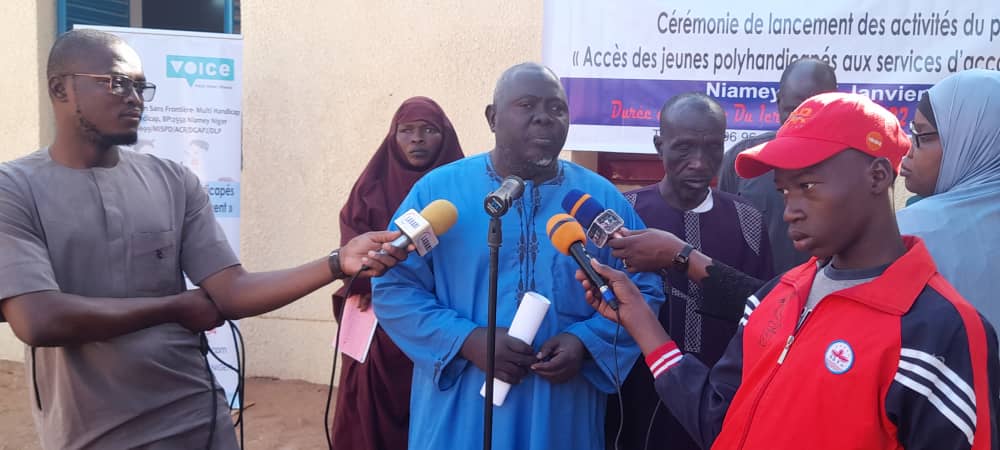
For any person who has multiple disabilities, it seems to us that the significant risk would be total isolation resulting from a combination of several factors, such as a lack of understanding by the world around them of what they are expressing and, therefore, a situation of non-communication; significantly reduced mobility; impossible access to information which is essential for their day-to-day life as well as for their social integration.
In short, the life of a child or adult deprived of the two primary senses or severely limited is difficult for others to imagine. They are making their speech ‘unheard’. The person is denied (or at least strongly suspected of being rejected) their capacity for expression and reception, meaningful exchange with others, and citizenship.
These limitations, therefore, strongly underline a challenge: the critical role that public policy can play in implementing a capability approach that is not reduced to the resilience of individuals alone but rather to coaction aimed at social communication and full citizenship.
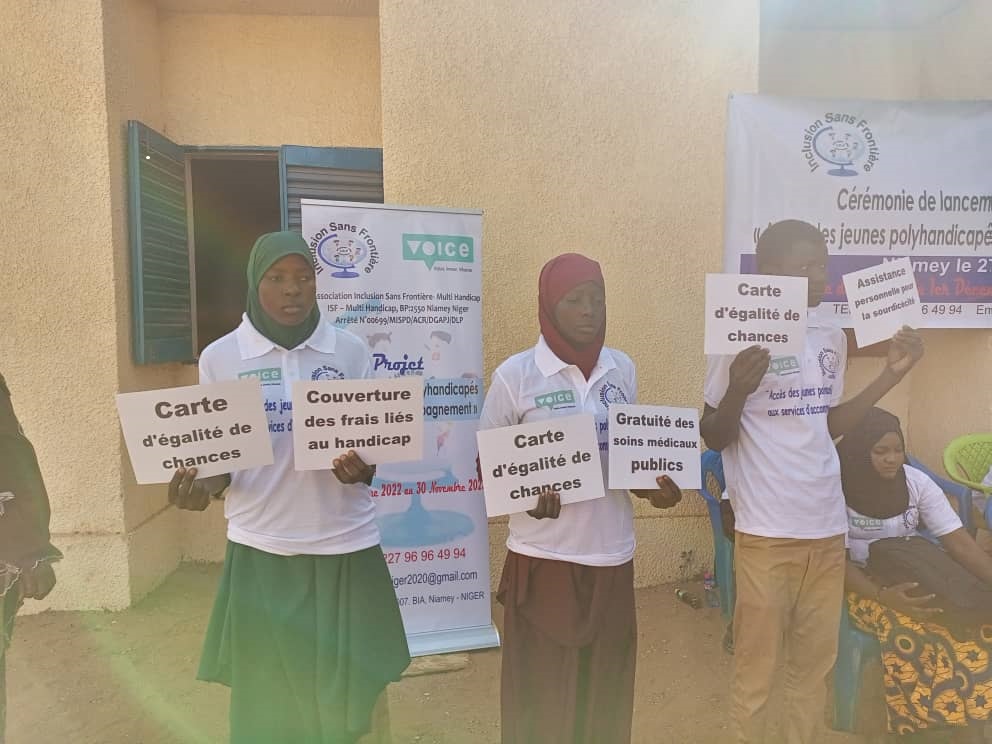
The grounds for hope allow for sending a message to policymakers to establish an equal opportunities card for the coverage of disability-related costs, free public medical care, personal assistance for deaf-blindness, priority seating in public areas by the Convention on the Rights of People with Disabilities and national legislation.
Even though equality is well listed in the declaration of human rights and on the pediments of our schools and other public places, its implementation in deeds and even in words is still far off. The kinds of statements on disability that we sometimes make perpetuate the perception of people with multiple disabilities as inferior beings and maintain them in a submissive position that hinders empowerment.
